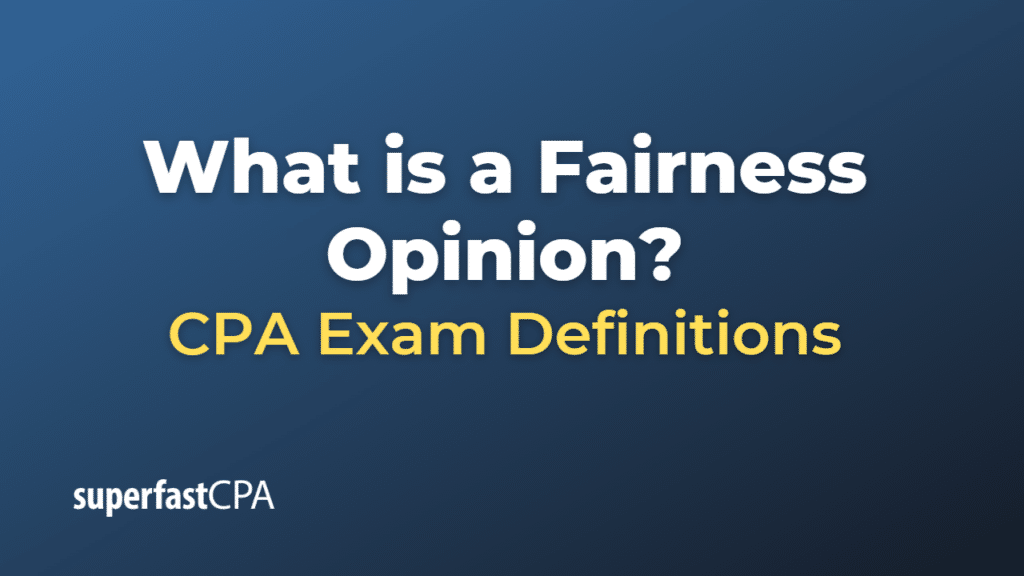Fairness Opinion
A fairness opinion is a professional evaluation by an investment bank or other third party that determines whether the terms of a merger, acquisition, buyback, spin-off, or private equity buyout are fair from a financial point of view. It is often used in significant business transactions and usually looks at the fairness of the deal’s terms to the shareholders of the company.
Investment banks or financial advisory firms typically provide fairness opinions, and they base these opinions on a variety of analytical techniques, including discounted cash flow analysis, comparable transactions analysis, and comparable company analysis.
While a fairness opinion provides a professional assessment of the financial fairness of a deal, it does not necessarily mean that the deal is a good strategic move for the company or that shareholders should vote in favor of the deal. Additionally, it is not a guarantee that a proposed transaction is the best possible transaction.
The main purposes of fairness opinions are to:
- Provide some reassurance to the decision-makers (usually the board of directors) of a company that they are making a financially sound decision that is in the best interests of the shareholders.
- Help protect decision-makers from litigation related to the transaction. Shareholders sometimes sue the company’s board of directors if they believe the board did not act in their best interest.
- Offer additional information to shareholders when they are deciding how to vote on a proposed transaction.
Although fairness opinions can provide valuable insights into a transaction’s fairness, they also have limitations. For example, they typically do not take into account the strategic implications of a deal or the specifics of a company’s situation beyond the financial aspect.
Example of a Fairness Opinion
Let’s use a hypothetical merger scenario as an example:
Let’s say Company A proposes to acquire Company B for $50 million. The board of directors at Company B, having a fiduciary duty to protect their shareholders’ interests, wants to ensure that the proposed price is fair. They hire an investment bank or financial advisory firm to conduct an analysis and provide a fairness opinion.
The firm might perform several analyses to determine the fairness of the deal:
- Comparable Company Analysis: The firm would look at the valuation metrics of similar companies in the same industry. If other similar companies are trading at an average enterprise value (EV) to EBITDA multiple of 10x and Company B is being acquired at an 8x multiple, this could suggest that the price is potentially unfair.
- Comparable Transaction Analysis: The firm would examine recent transactions in the same industry. If similar companies have been acquired at higher prices or multiples, this could also suggest that the offer price is potentially low.
- Discounted cash Flow (DCF) Analysis: The firm would forecast Company B’s free cash flows into the future and discount them back to their present value. If the net present value (NPV) of these cash flows is significantly higher than the proposed $50 million, this might suggest that the company is worth more than the offered price.
After performing these analyses, the firm might conclude that a fair price for Company B would be in the range of $55 million to $60 million, based on the financials and current market conditions. Thus, they could issue a fairness opinion stating that the proposed acquisition price of $50 million is financially unfair.
The board of Company B would then use this fairness opinion in their negotiations with Company A, potentially leading to a higher offer price. It’s important to note that a fairness opinion doesn’t guarantee that a proposed transaction is the best possible deal, nor does it consider non-financial factors, which can also be crucial in merger and acquisition scenarios.













